2020 Toyota Yaris Service, Tires & Repairs
Get Started
Complete Auto Care for Your 2020 Toyota Yaris
-
TIRES FOR YOUR 2020 Toyota Yaris View Tire Info GET TIRE PRICING
-
REPAIR FOR YOUR 2020 Toyota Yaris View Repair Info SCHEDULE REPAIR
-
MAINTENANCE FOR YOUR 2020 Toyota Yaris View Maintenance Info SCHEDULE MAINTENANCE
-
OFFERS FOR YOUR 2020 Toyota Yaris Limited Time Tire Offers VIEW ALL COUPONS
2020 Toyota Yaris Tires
Recommended Tires | Tire Information
2020 Toyota Yaris Tires Sizes, Speed Ratings, and Inflation
Not sure about your 2020 Toyota Yaris tire size? Use the following chart to find information on tire size, speed rating, and inflation.
| Trim Level | Speed Rating | Inflation in PSI F/R | Tire Size |
|---|---|---|---|
| 2020 Toyota Yaris LE | H | 36 PSI/33 PSI | P185/60R16 |
| 2020 Toyota Yaris L | H | 37 PSI/33 PSI | P185/65R15 |
| 2020 Toyota Yaris XLE | H | 36 PSI/33 PSI | P185/60R16 |
|
2020 Toyota Yaris LE Speed Rating: H Inflation F/R: 36 PSI/33 PSI |
|
2020 Toyota Yaris L Speed Rating: H Inflation F/R: 37 PSI/33 PSI |
|
2020 Toyota Yaris XLE Speed Rating: H Inflation F/R: 36 PSI/33 PSI |
* Note: these models have different tire sizes depending on vehicle options.
Recommended Tires for Your 2020 Toyota Yaris
What tires are best for a 2020 Toyota Yaris? Check out the following tire brands and types.
 Blizzak WS90
Blizzak WS90
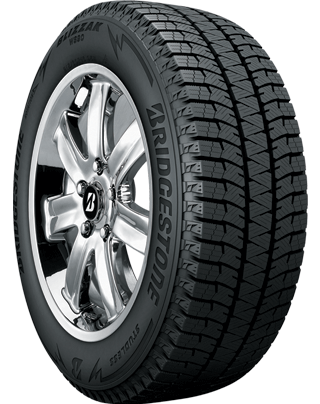
- No warranty
- Winter
- Winter
 Ecopia EP422
Ecopia EP422
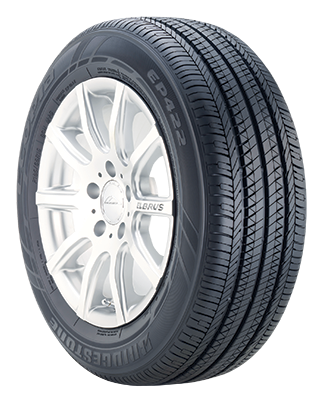
- Platinum Pact Limited Warranty
- All-Season
- Performance
 Ecopia EP422 Plus
Ecopia EP422 Plus
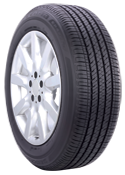
- Platinum Pact Limited Warranty
- All-Season
- Performance
 WEATHERPEAK
WEATHERPEAK
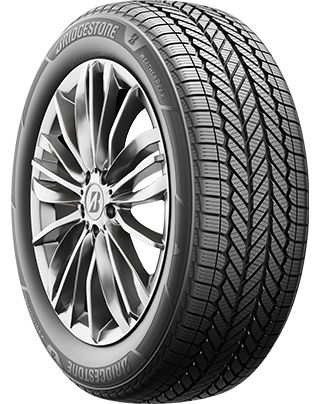
- Platinum Pact Limited Warranty
- All-Season
- Passenger Tires
 WEATHERGRIP
WEATHERGRIP
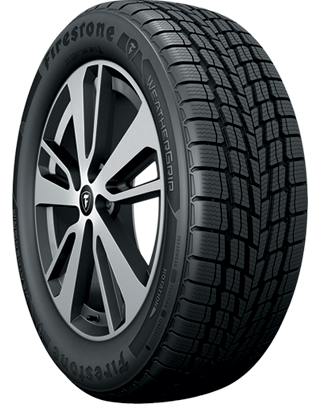
- No warranty
- All-Season
- Passenger Tires
 Winterforce 2
Winterforce 2
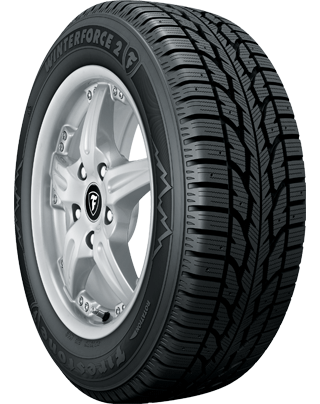
- No warranty
- Winter
- Winter
 ALL SEASON
ALL SEASON

- No warranty
- All-Season
- Passenger Tires

- No warranty
- All-Season
- Passenger Tires

- No warranty
- All-Season
- Passenger Tires
 Extensa A/S II
Extensa A/S II

- No warranty
- All-Season
- Passenger Tires
Choosing 2020 Toyota Yaris Tires
Other than getting the proper tire size, you also want to think about a couple of other things when getting new Toyota Yaris tires like how and where you drive, and how much you want to spend. Think about where you live (countryside vs. city vs. mountains) and the kind of unexpected weather you're likely to experience when evaluating your driving conditions. Many drivers who live in states that experience all four seasons choose to purchase two sets of tires: one for winter and one for summer. Other drivers prefer the convenience of all-season tires. They make one trip to the tire shop and they're pretty much ready for rain, light snow, or sun!
Your personal driving style is the next factor to consider. If you're a big off-roading fan who forges paths where others can't, you have very different needs than a long-distance commuter who sticks to the highway. Visit your local Firestone Complete Auto Care for help selecting the tire that's right for you, or get started by browsing tires that fit your Toyota Yaris.
2020 Toyota Yaris Tire Installation & Rotation
We sell tires, but we also service them and care for all the around-the-wheel components. We're a tire store that also offers professional tire installation, maintenance, and rotation, along with complete auto care. Shop 2020 Toyota Yaris tires online and schedule an installation appointment.
2020 Toyota Yaris Tire Q&A
-
Why check Toyota tire inflation? Even a tiny decrease in tire pressure could impact your safety and fuel economy. Maintaining proper tire pressure can help increase fuel economy, improve braking time, and boost tire lifespan.
-
What do the numbers on my Toyota Yaris tires mean? The numbers on your tire sidewall give you information about tire speed rating, traction, treadwear, tire size, and load carrying capacity. Chat with a tire technician to learn how to read the numbers on your Toyota tires!
-
How do I check the tread depth on my Toyota tires? Stay on top of your tire tread depth to help avoid a dangerous drive. You can check tread depth with a penny. Hold the penny so that Abraham Lincoln is facing you, then place your penny into a tread groove upside down. If you can see the top of Abe’s head, your tread is shallow and it might be time for new Toyota Yaris tires. Grab a penny. Hold the so that Abe Lincon's head is facing you and his hair is pointing toward the ground. Then, place the penny into a tread groove. If you can see the top of Abe’s head, your tread is shallow and it might be time for new Toyota Yaris tires.
Repair Services for Your 2020 Toyota Yaris
Want more details? Choose a service below to read more about Toyota Yaris repairs at Firestone Complete Auto Care.
2020 Toyota Yaris Repair Information
For most drivers, the words “car repair” don’t exactly spark excitement. But at Firestone Complete Auto Care, we strive to give you the excellent repair experience you deserve. When it’s time for 2020 Toyota Yaris repair services, head to your nearest Firestone location and rest easy knowing that your Yaris is in capable hands. Before we begin any repair work, we’ll diagnose any issues and answer your questions about potential repair options. We’ll never recommend a repair we don’t think is necessary for your safety or the performance of your Toyota.
How Much Does Toyota Yaris Repair Cost?
The cost to repair your 2020 Toyota Yaris depends on what kind of repair you need, costs of replacement parts or repair supplies, how much labor the repair will take, and where you live. But regardless of where you’re located, check out our website for repair coupons and offers that could save you some cash.
A few different aspects can influence repair costs for your 2020 Toyota Yaris, like
Questions About 2020 Toyota Yaris Auto Repairs
-
Can scheduled maintenance help me avoid repairs? The cheapest 2020 Toyota Yaris repair is the one that isn’t necessary in the first place! Staying up-to-date with your car’s scheduled maintenance services is a great way to keep future repair costs low.
-
Should I bring my Toyota in even if I can't pinpoint the problem? No, we’re not talking about finding the best jams on the radio! You know your car best, and you’re the first person who will notice if something doesn’t feel right (like new smells, sights, or sounds coming from your car). If you sense that something is 'off,' stop in for a Courtesy Check to have these symptoms checked out ASAP. Early action could help you prevent Toyota Yaris repairs.
-
Are the repairs you recommend for my Toyota actually needed? We won’t recommend a service or repair for your 2020 Toyota Yaris unless we think it’s necessary to keep you safe. Want to know more about a specific recommended repair? Ask! We’re here to help.
Brake Repair for Your 2020 Toyota Yaris
Your Toyota Yaris engine may be strong and reliable. But if you can't stop it, then it's scrap metal. Don't wait if you're experiencing brake squeaks or a loss of braking power. Safe driving and responsive brakes go hand in hand. What's more, waiting for things to figure themselves out can result in more damage to your brakes and your wallet. Get your 2020 Toyota Yaris brakes fixed at Firestone Complete Auto Care. We offer many affordable brake repairs like brake pad/shoe removal and replacement, brake rotor/drum machining, brake fluid exchange, and brake caliper and wheel cylinder service.
Questions About Your Toyota Yaris Brakes
-
What is causing my Yaris to shake when I brake? Faulty brake calipers, worn brake pads or rotors, loose or worn suspension parts, and warped rotors can cause your Yaris to shake during braking. If you’re experiencing odd brake behavior, schedule a free brake inspection at a nearby Firestone Complete Auto Care.
-
How long can I expect my Yaris brake pads to last? You can usually get around 30,000 to 40,000 miles out of your brake pads, but how and where you drive your Yaris can affect this. Hauling large loads or riding your brakes can shorten their lifespan, while smoothly braking and mostly sticking to highways can help your brake pads last longer.
-
Can brake fluid leak when my Yaris is off? Because your Yaris brake system is a closed hydraulic system, it should not leak brake fluid. However, if components in your brake system have worn out or been damaged, it might cause brake fluid to leak.
When to Get Toyota Yaris Drivetrain Repairs
Drivetrains for front, rear, and all-wheel-drive and 4WD vehicles are quite different, so you don't want to go to just anyone for drivetrain repair. You want to visit Firestone Complete Auto Care. We can take care of most 2020 Toyota Yaris drivetrain components Your Toyota could be crying out for driveshaft repair if you notice clunks when shifting, vibration as your vehicle accelerates, resistance when turning, or heavy vibrations in your floorboards.
Questions About 2020 Toyota Yaris
-
How do I know if my Toyota drivetrain is damaged? Your Toyota Yaris drivetrain might be damaged if you notice strange noises from the rear of your vehicle, see fluid leaking, or have issues turning.
-
Why is my Yaris malfunction indicator light (MIL) on? If your Yaris has its malfunction warning light (more commonly called the check engine light) illuminated, it could indicate engine troubles, problems with the transmission, electrical issues, malfunctioning sensors, connector problems, or misfire issues.
-
Is a drivetrain malfunction in my Yaris serious? A drivetrain malfunction in your Yaris should never be taken lightly. Driving with a malfunctioning drivetrain can put you in danger and lead to further vehicle damage, so it's essential to have a qualified mechanic assess and repair the problem as soon as possible.
2020 Toyota Yaris Wheel Alignment
With an alignment service, adjustments are made to your Toyota Yaris’s suspension system, the connection between the vehicle and the wheels. During the service, the individual angles of your tires are adjusted so that they come into contact with the road in just the right way — the way Toyota intended them to. Before we adjust the alignment of your 2020 Toyota Yaris, we’ll start by checking the current alignment angles. After that, we can adjust your wheel alignment angles until they match Toyota’s recommended measurements.
Questions About Toyota Yaris Alignment
-
Are there road conditions that can hurt my Toyota Yaris alignment? Hitting a pothole or curb can alter your wheel alignment. So can general wear and tear over time.
-
How often does your Yaris need a wheel alignment? Typically, your alignment should be checked every 6,000 miles or 6 months, whichever comes first. Double-check your Yaris owner’s manual for Toyota's exact recommended schedule.
-
Do you need to get your Yaris wheels aligned? It’s likely not a requirement to get an alignment when you install new tires on your Yaris, but it's a smart idea to do so anyway. An alignment can help ensure even tire wear, smooth handling, and better fuel efficiency.
2020 Toyota Yaris Engine Services
If your 2020 Toyota Yaris needs engine repair, our technicians will provide you with a thorough explanation beforehand. We never do any work without your sign-off. If a service can wait, we’ll make sure you know. But if immediate repairs are necessary for your safety, we’ll make sure that's clear, too. We want to provide you with the information you need to make an informed engine repair decision. Turn to Firestone Complete Auto Care for your 2020 Yaris engine repairs and you can drive easy knowing that we use Toyota-approved parts and fluids — serpentine belt, valve guide seal, fuses, or another part.
Questions About 2020 Toyota Yaris Engines
-
Why does the check engine light in my Yaris turn on when I start my car? It’s usually normal for your check engine light to turn on upon ignition. This is just your Yaris testing its circuits. The dash light shouldn't stay on. If it does, you might want to bring your vehicle in for service.
-
Are Toyota Yaris engine noises bad? Strange under-the-hood noises can point to problems within your Toyota Yaris engine. Tapping or knocking could mean you need an oil change. Whistling sounds could mean you have an intake leak or misaligned belt. Squealing may be caused by a loose fan belt, and grinding could be a sign that something is wrong with your brakes — not the engine.
-
Are you unknowingly damaging your Toyota Yaris engine? Certain driving habits can hurt your engine. These habits include driving on an empty fuel tank, revving your engine while the vehicle is in Park, or slamming the gas pedal while the engine is still cold. Steer clear of these habits to help protect engine performance and efficiency.
2020 Toyota Yaris Tire Repair
Firestone Complete Auto Care is here for you when your 2020 Toyota Yaris needs flat tire repair or inspection. Our tire technicians can determine whether it's safe to plug and patch the tire, or whether it needs to be replaced. We'll start by evaluating the state of wear, the location of damage, type of damage, and the size of the damage.
If your 2020 Toyota Yaris tire puncture can be repaired, the repair process is actually fairly simple: (1) Separate the tire from the vehicle wheel, (2) use a filler to close up the puncture (this is to keep moisture from getting in), and (3) seal the inner liner with a repair unit to prevent air loss.
Your Questions About Toyota Yaris Tire Repair, Answered
-
Can I drive my Toyota on a flat tire? Driving on a flat or underinflated tire can put extra stress on your wheels and alignment. While it’s sometimes necessary to drive a short distance on a flat tire to get to a safe place, don’t take any other trips in your Yaris until you can have the flat tire repaired or replaced.
-
Can I use an emergency/temporary sealant to fix my Toyota's flat tire? A temporary sealant may be able to help you get to a repair location safely. But temporary or emergency sealants could possibly damage TPMS sensors, and in some cases may even void the warranty on your Bridgestone or Firestone tires. If your tire needs extensive repair, sealant can add time and labor costs to the process.
-
Why do the tires on my Yaris keep losing air? If your Yaris tires are always losing air, you may have a puncture, damaged wheel, or leaking valve stem.
2020 Toyota Yaris Maintenance
When it comes to your Toyota Yaris, how you treat your car makes all the difference in its performance. With proactive maintenance, your Yaris could be on the road well past the 200,000 mile mark.
2020 Toyota Yaris Maintenance Schedule
What is the manufacturer recommended maintenance schedule for a 2020 Toyota Yaris? Find maintenance info for your vehicle.
2020 Toyota Yaris Maintenance Information
It can be overwhelming, but fortunately, there’s a resource that takes the guesswork out of routine Yaris maintenance. It’s as easy as following the recommended maintenance schedule that’s been written specifically for your 2020 Toyota Yaris! Toyota knows your vehicle inside and out (they made it, after all!), so they’ve designed this schedule with your car’s unique needs in mind. Scheduled maintenance services can vary depending on driving conditions, climate, and other factors; in most cases, though, recommended maintenance will consist of services like tire rotations, vital fluid checks/exchanges, filter changes, brake pad replacement, and oil changes. Staying on track with routine service appointments can help your Yaris perform better, decrease your risk of dangerous malfunctions on the road, and maybe even save you the headache of dealing with common 2020 Toyota Yaris problems in the future.
Learn About Vital Maintenance Needs for Your Toyota Yaris
Bring your 2020 Toyota Yaris to Firestone Complete Auto Care for factory-recommended maintenance services and a skilled technician will start the appointment with a Courtesy Check. The Courtesy Check helps us see what we’re working with under the hood, and allows us to alert you to any potential problems before they worsen. During a Courtesy Check, we’ll always check your battery, then we’ll move on to inspect your Yaris’s head and tail lights, tires, fluid levels, alignment, and windshield wipers.
Firestone Complete Auto Care is your one-stop shop for 2020 Toyota Yaris maintenance and repairs. We can help you keep your vehicle (and your life!) running smoothly. Many of our locations have weekend and evening hours for your convenience.
Questions About 2020 Toyota Yaris Maintenance
-
When should I have Toyota Yaris alignment checked? Check your car for pothole damage! If you’ve recently hit a pothole (or even if you don’t remember hitting one… they can be sneaky!) check your tire treads, tire sidewalls, and wheels for damage. Potholes can also knock your car out of alignment, so have your alignment checked if you suspect you’ve driven over a rough patch of road lately.
-
When does my Toyota Yaris need high mileage oil? If your Toyota Yaris has ticked past 75,000 miles, consider switching to high mileage oil at your next oil change to give your engine what it needs to go another 75,000 (or more!). High mileage oil: make it a high priority!
-
Can Toyota dashboard warning lights wait? Don't ignore dashboard warning lights! Bring your Toyota Yaris in for a diagnostic code scan as soon as a dashboard warning light flashes on, whether it's your check engine or battery light. Dashboard lights alert you to trouble under the hood.
Battery Size & Replacement for 2020 Toyota Yaris
Not sure what battery to get for your Toyota Yaris?
| Battery | Engine | Warranty | Cold Cranking Amps | |
|---|---|---|---|---|
| 35-1 | L4/1.5L | Replacement 24 months | Performance months | 500 |
| 35-2 | L4/1.5L | Replacement 36 months | Performance months | 640 |
| 35-AGM | L4/1.5L | Replacement 36 months | Performance months | 650 |
2020 Toyota Yaris Car Batteries
On average, auto batteries last anywhere from three to five years. You want to replace your 2020 Toyota Yaris battery before it fails and leaves you stranded. Pay attention to clues that your battery is on its way out. A lagging starter, an illuminated battery or check engine light, bloated battery case, corrosion-covered posts, and subpar electrical performance can all signal that your battery is on its last leg.
Or, you can get a complimentary battery check at your nearest Firestone Complete Auto Care. Drop in for a free battery check and, if necessary, a battery replacement to help keep your 2020 Toyota Yaris running! Car batteries are only one of our many strong suits. Our technicians are familiar with Toyota-specific recommendations for Yaris car batteries’ reserve capacities and cold cranking amps. Get help figuring out the battery size that's best for your Yaris, and schedule a fast car battery replacement at your earliest convenience.
Answers to Your Toyota Yaris Car Battery Questions
-
Why doesn’t my Toyota Yaris battery stay charged? A battery that won't hold a charge is almost as good as dead. The battery might be old. Or, you may have a habit of leaving your car doors open and the lights on overnight. Stop by for a free battery test at your local Firestone Complete Auto Care to learn more about the state of your battery.
-
What is the average lifespan of a car battery? Car battery lifespan varies depending on a few factors, including driving conditions, accessories, how well it’s maintained, and the type of battery. On average, a car battery lasts about three to five years.
-
Why is there white, crusty buildup on my Yaris’s battery post? If you notice white, crusty stuff around the battery terminals of your Yaris, it's likely corrosion. A chemical reaction between battery acid and the air can create a white, powdery substance that builds up over time on the terminals. This buildup can interfere with the electrical connection between the battery and your Yaris’s electrical system, potentially leading to poor performance, difficulty starting, and other issues.
2020 Toyota Yaris Oil Change Service
Toyota recommends having your 2020 Toyota Yaris’s motor oil changed at regular intervals. Outside of Toyota-recommended oil change intervals, your Yaris may need an oil change if your check engine light is on, you hear knock knock knock coming from the engine, smell oil inside the vehicle, or notice excess vehicle exhaust. You may also need an oil change more frequently than Toyota recommends if you haul heavy loads, frequent dusty roads, go off-roading a lot, or go long distances at low speeds.
Your local Firestone Complete Auto Care has the right 2020 Toyota Yaris motor oil: either synthetic or conventional. Consult Toyota's recommendations to select the right 2020 Yaris oil and talk with a teammate to learn more about our oil options: Quaker State® Advanced Durability™ conventional oil, Pennzoil® High Mileage Vehicle® motor oil, Pennzoil Platinum® Full Synthetic motor oil with PurePlus™ Technology, and Shell Rotella® heavy-duty engine oil. During an oil change, one of our techs will change your Yaris’s oil, replace and recycle the old oil and filter, check all of your other filters, top-off essential fluids, and perform a free inspection on the rest of your vehicle. Let the experts take care of your Yaris’s engine by making an oil change appointment today.
2020 Toyota Yaris Oil Change Q&A
-
What does it mean if my Toyota Yaris oil light comes on? Your Toyota Yaris oil change reminder light may come on if you're overdue for an oil change. The oil pressure light will typically come on if the oil level in the engine is too low, the oil pump is failing, you have a clogged oil filter, or there's a faulty oil pressure sensor.
-
Can I change my Toyota Yaris oil at home? Changing engine oil at home isn’t as simple as it’s made out to be. You’ll have to figure out how to properly dispose of the oil and buy special tools. Having your oil changed professionally can not only reduce the risk of something going wrong during the service, but it’ll also help your car perform smoothly down the road.
-
Why is my Toyota Yaris exhaust smoke grayish or blue? There could be an oil leak and your engine is burning oil. Time to have a qualified technician check things out. The leak could be caused by several issues like leaking valve seals, damaged piston rings, or worn cylinder walls.
Engine Tune-Up Service for Your 2020 Toyota Yaris
Regular engine tune-ups can optimize your Yaris’s power on the road. Your local Firestone Complete Auto Care offers a range of engine tune-up services for your 2020 Toyota Yaris. One option is the standard Firestone Tune-Up. This includes the installation of new spark plugs and a visual inspection of your engine’s components, plus a lifetime warranty on parts*. The second service focuses on your Yaris's filters, specifically replacing the air filter and fuel filter. Our third service is a thorough cleaning of the fuel system. During this type of tune-up, we use a three-step process to get rid of harmful varnish, dirt, and carbon deposit buildup in your Yaris’s fuel injectors, throttle body, and throttle plate. This can improve your fuel system’s performance (and therefore, your engine’s performance). Consider this when choosing a tune-up service for your Yaris: your vehicle’s maintenance record and mileage can determine which service is best. Talk to a technician about your driving style, mileage, and service history to learn more about your vehicle's specific needs.
*Check with a teammate at Firestone Complete Auto Care for complete terms and conditions regarding warranties.
Common Engine Tune-Up Q&A for 2020 Toyota Yaris
-
What happens if my Toyota Yaris spark plugs fail? Replace spark plugs on time or about every 30,000 miles or so. Without the spark of electricity created by spark plugs, your engine doesn’t have the combustion it needs to start — which could leave you stranded on the road. Always replace your spark plugs on time based on Toyota’s recommendations.
-
What do I do if I see a pool of liquid under my Toyota Yaris? Don't ignore puddles of fluid under your Toyota Yaris. It could signal a coolant leak, brake fluid leak, or an oil leak. Let any one of these leaks linger and it could cause engine damage.
-
How often should I clean my Toyota Yaris fuel injectors? Factors like fuel type and driving conditions can affect how frequently you need to clean your Yaris fuel injectors. Some manufacturers recommend a fuel system cleaning as part of routine maintenance, or as needed if your vehicle is showing signs of poor fuel system performance.
2020 Toyota Yaris Suspension Service & Repair
When you first bought your 2020 Toyota Yaris, you probably enjoyed a smooth and steady ride. Lately, though, your ride’s been feeling a little bumpy. Maybe your Yaris bounces, sways to one side, or makes a weird sound when you drive over a speed bump or turn. As soon as you notice that something’s “off” with your 2020 Toyota Yaris, bring it in for suspension and steering service. We'll get to the root of the problem and, if your Yaris suspension system needs repair, we’ll explain what your car needs and how much it’ll cost to get it done. We won't begin any work without your permission.
Questions About 2020 Toyota Yaris Steering & Suspension
-
Why is my Toyota Yaris bouncing excessively? Damaged struts or shocks can't dampen road bumps properly, causing your vehicle to feel like a trampoline after each dip or bump.
-
What can cause the front end of my Yaris to dip forward when I apply the brakes? The forward dip in the front end of your Yaris when you brake is caused by the weight and momentum transferring to the front wheels. If your suspension system is in bad shape, it can fail to distribute this force, leading your front end to dip further downward.
-
Does tire pressure and tread depth impact my Toyota's suspension? Proper tire care can reduce strain on the suspension system, and also alert you to the need for new tires. Uneven tire wear is one sign of steering and suspension system problems, but it can also contribute to more.
2020 Toyota Yaris A/C Service Near You
Our technicians will work to solve your 2020 Toyota Yaris A/C problems to the best of their ability. During an A/C performance check, we'll determine the condition of your 2020 Toyota Yaris A/C system to see if repair work is required. This check will include an examination of system pressure, a visual inspection, and a leak test.
Let's say we repair your 2020 Toyota Yaris A/C system. We will also perform an A/C evacuation and recharge. During this process, a technician will remove the old refrigerant from the A/C system. Next, they will evacuate the system according to Toyota's recommendations. The A/C system is recharged with new refrigerant.
Questions About 2020 Toyota Yaris A/C Systems
-
Why is my Yaris A/C blowing hot air? If your car’s air conditioning isn’t blowing cold air at all (or it tries, then turns warm), you could have a clogged expansion valve, a faulty compressor clutch, a leak, or a malfunctioning fuse in the system.
-
What causes A/C system leaks? A/C system leaks are often due to a combination of age and moisture. Rubber seals and gaskets naturally degrade over time, allowing refrigerant to exit and moisture to enter your Yaris's A/C system.
-
Why does my vehicle have to be moving for my Yaris’s A/C to work? Damaged or worn components in your Yaris’s electrical or air conditioning system can cause the A/C to only work when the car is moving. You may be dealing with low coolant or a faulty cooling fan.
2020 Toyota Yaris Transmission Service & Repairs
The transmission delivers power from the engine to the wheels so that you can drive on your terms. Because of the transmission’s responsibility to translate the right dose of power into the right amount of speed, a small transmission issue can put a big dent in your Yaris’s performance. Toyota Yaris transmission problems can present themselves as shifting delays, grinding when accelerating, the car shaking on the road, or whistling noises or a burning smell coming from beneath the hood. If you don’t pay attention to Toyota Yaris transmission trouble you could see your fuel economy decrease or find that your Yaris isn’t working at all. Our technicians know how to service your 2020 Yaris up to Toyota-recommended standards. As soon as you suspect something’s wrong with your Yaris’s transmission, book an appointment at your local Firestone Complete Auto Care to help keep your engine running at peak performance.
2020 Toyota Yaris Transmission Questions & Answers
-
When should I have my Yaris's transmission fluid checked or exchanged? Regularly checking and exchanging your 2020 Yaris’s transmission fluid is one of the best ways to help the transmission system perform. Some technicians would say that between 30,000 and 60,000 miles is a good timeframe for having your Toyota's transmission fluid checked and replaced, but that timeline can vary depending on how your vehicle is used and your manufacturer’s recommendations. The good news is that transmission fluid leaks are affordable to repair and easy to spot.
-
Can Toyota Yaris transmission fluid leak? Yes, your Toyota Yaris can develop a transmission fluid leak. As your Yaris ages, parts of the transmission system might wear out or break down, leading to a leak and possible transmission issues. Common causes of transmission fluid leaks include worn seals, a damaged transmission housing, a loose or cracked transmission pan, an overfilled transmission, or faulty transmission lines.
-
Can I drive my Toyota Yaris with a transmission fluid leak? Driving your Yaris with a transmission fluid leak is highly discouraged. Transmission fluid is vital to the smooth operation of your transmission system, and a leak can put the entire system at risk. A transmission fluid leak may lead to decreased performance, overheating, and possibly even transmission failure.
Vehicle Inspection for 2020 Toyota Yaris
At Firestone Complete Auto Care, we perform a multi-point Courtesy Check during any vehicle service. To start, one of our technicians will check the battery in your Toyota Yaris to determine how much charge remains. The check will continue with a visual inspection of your Toyota Yaris's lights, windshield wipers, filters, hoses, alignment, tires, fluid levels, and belts.
Every service performed at your nearest Firestone Complete Auto Care will include a Courtesy Check, but we can also dig deeper and perform a Complete Vehicle Inspection on your 2020 Toyota Yaris if you prefer. A Complete Vehicle Inspection includes everything in a Courtesy Check, plus a thorough manual inspection of your steering and suspension system, brakes, and exhaust components. The goal of this type of inspection is to unearth significant issues that might wreak havoc on your 2020 Toyota Yaris if left unaddressed.
Depending on where you live, you may be able to complete your vehicle’s safety tests or state inspection at your nearest Firestone Complete Auto Care. Specific requirements for these types of inspections vary by state.
FAQs for 2020 Toyota Yaris Vehicle Inspections
-
How do I know if my Toyota Yaris needs a check-up? It needs a check-up if something feels 'off' to you, the driver. Your Toyota Yaris could benefit from a Courtesy Check if it has any illuminated dashboard lights, you hear weird noises coming from any part, the engine doesn't start sometimes, or your vehicle pulls to one side.
-
Can you fix my 2020 Toyota Yaris so it will pass a state inspection test? There's a good chance we can. Stop by for a full system inspection and we'll get to the root of the issue.
-
What's the ideal timing for a full vehicle inspection on my Toyota Yaris? It’s generally a good idea to get a complete vehicle inspection for your Toyota Yaris before a road trip and/or when something strange occurs and you are unable to find the cause. Signs something is up include dashboard lights illuminating, odd noises coming from the engine, and your steering feeling loose or tight.
2020 Toyota Yaris Radiator Service
Keeping up with regular radiator maintenance in your 2020 Toyota Yaris is essential for long-term engine health. In fact, Toyota recommends replacing coolant/antifreeze at specific intervals, but you can also take note of any signs your radiator is going bad. Your radiator could be close to causing an engine breakdown if you see coolant leaks under your car, high engine temperatures, or a dashboard light that indicates low coolant.
If you bring your vehicle to Firestone Complete Auto Care, we start with a comprehensive inspection of your Toyota Yaris’s cooling system. Then, we’ll move on to a machine-powered coolant exchange. Finally, we’ll refill the flushed sealants, lubricants and chemicals, then do a pressure check to catch any possible leaks. From the radiator cap to the heater core, we’ll take excellent care of your 2020 Toyota Yaris at Firestone Complete Auto Care.
2020 Toyota Yaris Radiator Q&A
-
What does the coolant light on my Toyota dashboard mean? f the coolant light illuminates on your dashboard, your engine could be overheating. Pull over to a safe area and wait for the engine to cool down. Then, head to your nearest Firestone Complete Auto Care for a coolant system check.
-
What is causing my Yaris to overheat? Low coolant, a damaged cooling fan, a faulty water pump, a malfunctioning thermostat, or a clogged radiator could all cause your Toyota Yaris engine to overheat.
-
What is making my Yaris radiator sound like it’s boiling or rumbling? There could be air pockets in your Yaris’s cooling system. You might also have a clogged radiator or faulty radiator cap (this last one is an easy fix!).